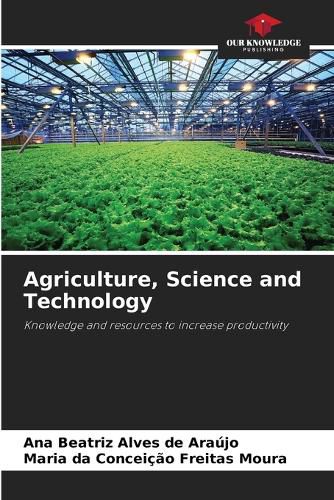Readings Newsletter
Become a Readings Member to make your shopping experience even easier.
Sign in or sign up for free!
You’re not far away from qualifying for FREE standard shipping within Australia
You’ve qualified for FREE standard shipping within Australia
The cart is loading…






Modern agriculture is increasingly driven by science and advanced technologies, essential factors for increasing productivity and sustainability in the sector. Thanks to biotechnology, scientists are developing genetically modified seeds that resist pests and extreme weather conditions, reducing losses and increasing production efficiency. At the same time, soil science has evolved to identify nutrients and the ideal chemical composition, allowing the specific use of fertilizers and reducing environmental impact. Precision technology, with sensors and drones, has also transformed agriculture, allowing detailed monitoring of soil and plants in real time. These devices identify water and nutritional needs and possible pest infestations, promoting precise and timely interventions. In addition, automation, with autonomous machinery and digitally controlled irrigation systems, makes operations faster and more efficient. The use of artificial intelligence and big data helps analyze climate patterns and trends, contributing to more informed decision-making. This knowledge and technological resources
$9.00 standard shipping within Australia
FREE standard shipping within Australia for orders over $100.00
Express & International shipping calculated at checkout
Modern agriculture is increasingly driven by science and advanced technologies, essential factors for increasing productivity and sustainability in the sector. Thanks to biotechnology, scientists are developing genetically modified seeds that resist pests and extreme weather conditions, reducing losses and increasing production efficiency. At the same time, soil science has evolved to identify nutrients and the ideal chemical composition, allowing the specific use of fertilizers and reducing environmental impact. Precision technology, with sensors and drones, has also transformed agriculture, allowing detailed monitoring of soil and plants in real time. These devices identify water and nutritional needs and possible pest infestations, promoting precise and timely interventions. In addition, automation, with autonomous machinery and digitally controlled irrigation systems, makes operations faster and more efficient. The use of artificial intelligence and big data helps analyze climate patterns and trends, contributing to more informed decision-making. This knowledge and technological resources